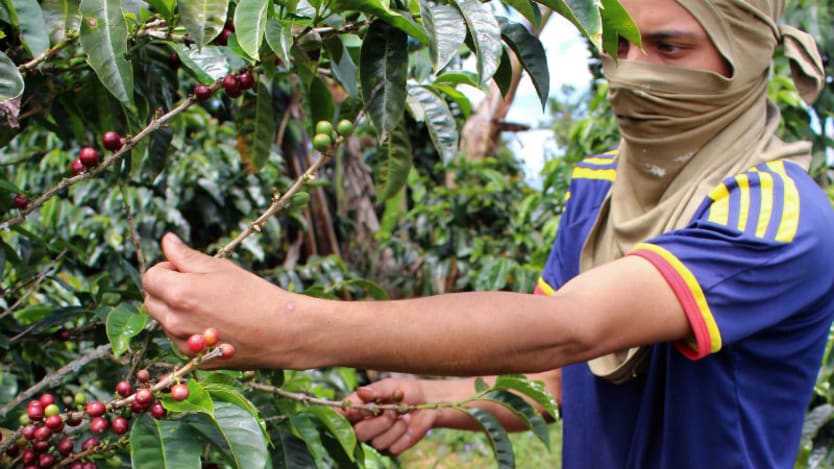
Last month, top Colombian economic minds gathered in Bogotá for a Grand Economic Forum on attracting investment as the country emerges from a decades-long civil war. Andres Cadena, a senior partner at McKinsey & Company, distilled the issue to its essence: “Colombia’s great challenge is that it has not found its growth model. The country has been growing with an economic model that generates growth, but not well-being. It is not an inclusive model.”
With no shortage of development dollars flowing to Colombia, how can that investment translate into an inclusive model of private sector-led economic growth? And how can the model become self-reliant over time?
“With no shortage of development dollars flowing to Colombia, how can that investment translate into an inclusive model of private sector-led economic growth? And how can the model become self-reliant over time?”
— Dr. Jolyne Sanjak, senior associate, Tetra TechTetra Tech has wrestled with these questions for nearly 20 years in Colombia, partnering with the United States Agency for International Development and with Colombia’s government, people, and businesses. One ingredient stands out: secure, formally documented land rights. As a recent land tenure and food security brief from USAID highlights, there is growing evidence — from Nicaragua to Benin — that secure tenure rights increase farmer investment and land productivity.
The value of formal land rights
In Colombia, we have seen the value of formal land rights firsthand across rural and alternative development projects. The Areas for Municipal Level - Alternative Development Program helped to revalidate a culture of legality by coordinating various national and local authorities, social organizations, and citizens groups to make progress, delivering 350 land titles. The CELI Central Project, which ended in 2017, supported governmental and community efforts to further secure land rights. In one case, Tetra Tech helped producer associations in the North of Cauca region apply for land titles, in response to the reality that their informal records of tenure rights could not be used to secure credit and hampered productive investments.
But implementing land policy in Colombia remains an unfinished agenda. Informal land rights, ongoing disputes, and land access are familiar issues for the communities involved with the current Community Development and Licit Opportunities project. CDLO’s economic and social development activities improve opportunity and well-being in post conflict zones, while USAID’s Land and Rural Development Project helps advance land rights solutions.
Inclusion of the most vulnerable populations — especially women — is central to these projects. In 2017, our team worked with the mayor of Santander de Quilichao, Hernando Mendoza Bermúdez, to make history by issuing the first municipal decree guaranteeing land ownership rights for women, motivating 10 additional municipalities to follow suit.
PPPs for inclusive economic growth
But land rights are only part of these stories. Inclusive economic growth also requires filling gaps in local infrastructure, strengthening value chains, and providing access to finance. In the Sierra Nevada Mountains of Cesar, for example, LRDP facilitated a specialty coffee public-private partnership, valued at $2.5 million, which combined indigenous entrepreneurs, growers’ associations, and regional government officials, helping to improve skills, processing equipment, and small-scale irrigation systems.
In Fuentedeoro, a small town in central Colombia, LRDP devised an innovative method of recognizing and titling individual lots within properties allocated 20 years ago under a collective land reform scheme.
“We're helping the community formalize their lands and become true owners,” said Fuentedeoro Mayor Antonio Londoño in a 2017 interview with LRDP. “This helps them with many things: to be able to take out a loan, to mortgage, to make development, and economic plans.”
And it does not stop there. Beyond Fuentedeoro, LRDP enables PPPs in other value chains including honey, cassava, and cacao. Through these PPPs, we work with local leaders, dozens of producers’ associations, and private companies to enhance commercial viability and create opportunity in rural areas where restitution and land titling are also supported, connecting the dots.
Scaling up for success
Since LRDP works directly with the government, Colombia’s land agencies are on the forefront of adopting these methodologies. Nationwide, 30,000 families want to individually title parcels from within past collective land allocations. Even more widely applicable is a LRDP-designed model of massive formalization, in which the government and the community collaborate to resolve conflicts and clarify, map, and title the land rights for every parcel of land in a municipality.
With scaling of action, results scale too. In a study of 33 countries, published in 2007 in Agricultural Economics, Ricardo Fort found stronger property rights were associated with a 5 percent increase in GDP growth. In a country like Colombia, it is hard to achieve these types of results without a comprehensive approach that creates an efficient property registry and provides legal documents for legitimate land rights for all women and men. Only then can Colombia deliver on access to credit and land markets that help producers and investors respond to opportunities, generating income and jobs.
In its recent rural development pamphlet, the Duque administration says that an estimated 65 percent of rural people live in poverty and an estimated 45 percent of agricultural production units are without land titles. In response, it pointed to the need for a “titanic effort to accelerate the program to formalize rural property.”
Walking this talk is possible by tapping progress from path-breaking efforts such as those we highlight above. But the question remains: Will Colombia take the opportunity to accelerate progress in resolving land issues, creating a foundation of secure, documented land rights across the countryside? If so, it will be a big step toward the kind of inclusive growth referenced in the Grand Economic Forum that so many in Colombia are working to achieve.




